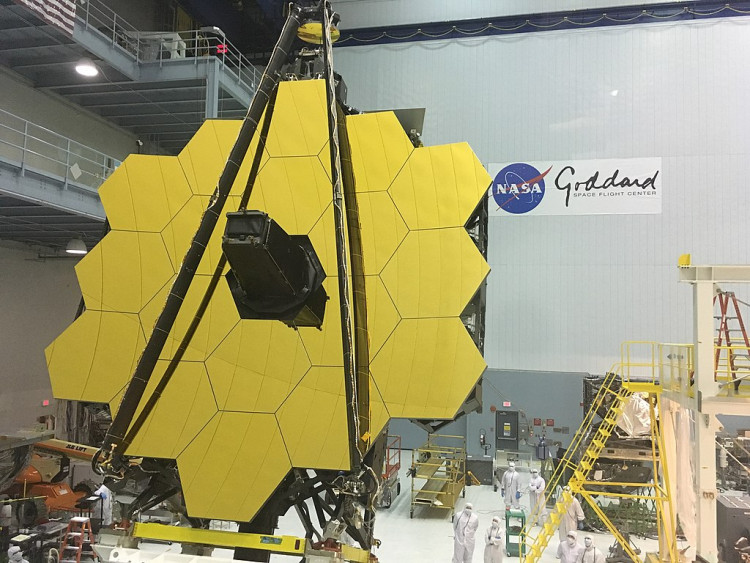NASA officials have announced that a cargo ship carrying the $10 billion James Webb Space Telescope arrived in French Guiana on Tuesday, capping off a 16-day ocean voyage that covered 5,800 miles.
On Sept. 26, the MN Colibri sailed from Seal Beach in Southern California's Orange County. On Oct. 5, it entered the Panama Canal, sailing from the Pacific Ocean to the Caribbean Sea, and then to French Guiana, a French territory on South America's northeastern coast.
The valuable payload will next be transported to Europe's Spaceport in the French Guiana town of Kourou, where it will be prepared for a Dec. 18 launch atop an Arianespace Ariane 5 rocket.
Engineers at the Kourou spaceport will conduct a series of final checks in the coming weeks before attaching the new telescope to its rocket.
"The James Webb Space Telescope is a colossal achievement, built to transform our view of the universe and deliver amazing science," NASA Administrator Bill Nelson said in a statement.
"We are now very close to unlocking mysteries of the cosmos, thanks to the skills and expertise of our phenomenal team."
Webb will travel 930,000 miles from its home planet to the Earth-sun Lagrange Point 2 after liftoff, a gravitationally stable location in space. The 13,670-pound telescope will begin viewing the cosmos in infrared light once it arrives, helping scientists in studies of the universe's first stars and galaxies, as well as searching for evidence of life in the atmospheres of nearby alien planets.
Webb is a cooperative initiative between NASA, the European Space Agency, and the Canadian Space Agency. The observatory's assembly is being led by NASA and its industrial partner, Northrop Grumman.
Webb's launch will be one of the Ariane 5's final flights. It will be replaced as Europe's flagship rocket system, beginning next year, by an updated system, Ariane 6, which should be less expensive to construct and operate.
Ariane 5 has launched numerous high-profile astronomical missions since its debut in 1996, including the XMM-Newton X-ray telescope, the Herschel infrared observatory, and the Planck surveyor. But none of these had the price tag that Webb wears.
Webb will be the most significant launch in the veteran rocket's 25-year career in terms of payload value.






